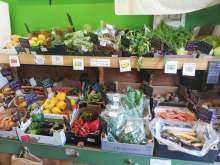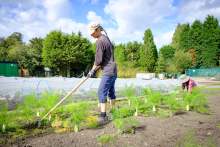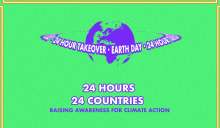Single-use items back in favour
Panic buying is not the only change that we’re seeing in consumer behaviour at the moment, there has also been a rise in the popularity of disposable plastics. As the focus on sanitisation has increased, items such as mainstream cleaners and hand soaps, hand sanitiser and plastic gloves have been put in high demand.
As The New York Times puts it, ‘disposability, once a dirty word, has become a selling point as hygiene takes priority over sustainability’.
Industry leaders in America had already been working to block plastic bag bans prior to the pandemic, but now they take advantage of the anxiety that we face due to coronavirus. It is by no means ethical to capitalise on fear.
An article featured in the Guardian says that the perceived trade-off between disposability and sustainability is a misnomer, safe hygiene and sustainability can exist quite happily together - all it needs is a little thought.
With regard to whether we should continue to ban single use plastic bags, the benefits far outweigh the costs; it takes barely any effort to wash or sanitise a used bag.
That said we wouldn’t recommend washing items that have been designed to be single use such as plastic gloves or facemasks (you can read more about this below).
You may also find some interesting ethical alternatives for disposables that are in short supply. If you can’t find disposable nappies opt for reusable ones. Or if you need sanitary products go for a menstrual cup.
And if you do run out of toilet roll, there are some more-eco alternatives that can be adopted from other cultures... Some options are to install a bum gun, or pick yourself up a washable ‘family cloth’. The latter has become popular of late and has also been dubbed the ‘pee rag’ and as ‘fabric toilet paper’ in mainstream media.
Greener sanitisation
Soaps and cleaning supplies do not need to be antibacterial to protect from coronavirus. Advice from the WHO specifies soap and water as one of the ‘most effective’ preventative measures for coronavirus. This means that you needn’t worry about using chemical-laden soaps in plastic pumps.
Rather than risking your health and the environment you can use organic soap bars from companies that have no or better packaging, or you can even make your own!
Cleaning products
Bleach and antibacterial sprays contain a whole host of chemicals and they are not necessary to protect against coronavirus. The Greenscents ‘practical guide to coronavirus’ states,
There is no need to put your health at risk by using harmful chemicals. Just as soap and water is best for washing your hands, soap and surfactant based cleaning and laundry products are best for household tasks.






